Deir el-Balah, Gaza Strip – It was late Friday night, and 28-year-old Amani al-Hor had just returned home when the missile struck her parents’ home right next door.
Amani had spent a couple of hours there that evening, playing a card game with her cousin to take their minds off the sound of the aerial bombings. She had chatted to her siblings and then taken her four children, who she said were “being a nuisance”, back to their own house.
Keep reading
list of 3 items
Heavy clashes as Israeli tanks briefly reach Gaza City outskirts
‘Our turn to die’: A Gaza blackout, the roar of Israeli jets and screams
‘Many players have died’: Israel’s war on Gaza hits Palestinian football
end of list
There were eight families spanning three generations under her parents’ roof that evening, in the Nuseirat refugee camp. Amani’s parents, their married children, the grandchildren and other relatives who had been displaced from their homes had all gathered to be together.
Shortly after 8pm, an Israeli air attack targeted the house. At least 40 members of Amani’s family were killed, including her parents, nearly all of her siblings and every one of their children.
The attack also damaged Amani’s house.
“I just found the walls and ceiling falling on us,” she said. “I didn’t hear the sound of the missile. It was like being in a grave. Somehow, I grabbed my four children in the dark and we managed to get out.”
Still in a state of shock, she began counting her family members that had been killed.
“My sister and her four children; my brother, his wife and their four daughters; my other sister-in-law, her son and two daughters – but her husband, my other brother survived,” she said. “It was a very crowded building and the children made a lot of noise. Most of them are still under the rubble.”
“I wish I could see my father,” Amani said. “I only saw the back of him that night, he was telling my siblings something as I was leaving. My mother’s body is torn into pieces. At the hospital, I only saw her arms, and her intestines had spilled out of her stomach.”
Amani had been very close to her sisters, talking to them every day.
“I wish I was killed with them,” she said.

No room left in cemeteries
More than 9,000 Palestinians – the majority of them women and children – have been killed by Israeli forces since they began their offensive on the Gaza Strip on October 7. More than 32,000 more have been wounded.
Hundreds of Palestinians have been killed every day and night since the bombing began, overwhelming hospitals, which are now in a state of collapse due to the total blockade imposed by Israel. Electricity, clean water and fuel have all run out, and there are no medical supplies or lifesaving treatments. At least 15 hospitals and medical centres have been forced to stop operating, meaning that patients have to be transferred to the remaining hospitals, which are already overcrowded.
The sheer number of casualties over the past 24 days has resulted in expedited funeral rites and burials, with the added anguish of laying family members to rest in mass graves.
“Before the war, funerals had rituals that were followed,” said Mukhtar al-Hor, 57, and a relative of Amani. “Dozens or hundreds of people would pray over the deceased before carrying them to the cemetery to be buried. Now, there are barely a handful of people available to pray over their loved ones.”

Mukhtar said that at least 18 bodies had so far been pulled out from under the rubble in the Nuseirat refugee camp, but some of them were body parts that could not be identified.
“I cannot describe what it is like to bury your family in a mass grave,” he said. “They are devoid of the funeral rites that we were used to during ordinary times.”
Diab al-Jaru, the Mayor of Deir el-Balah, said that the town has seen at least 20 major attacks carried out by Israel over the past four weeks against its residents and displaced people who have sought shelter there.
“So far, more than 400 people have been killed in Deir el-Balah alone,” he told Al Jazeera. “The large number of people killed means that we have run out of room in the cemetery, which was already full, as before the war we would bury two to three people from the same family in one grave.”
Now, the mayor said there is no other option than burying people in mass graves, usually separated by gender.
“Friday night alone saw 150 people killed. We had no choice but to bury them all together,” al-Jaru said.

Shrouded, prayed over and buried
Palestinians often refer to those killed in Israeli attacks as “martyrs” and their funeral processions usually hold a deep meaning for the people of their communities.
But the current, exceptional assault on Gaza has cut short not just these processions, but also the burial rituals which usually followed.
In normal circumstances, after being washed, the body of a loved one is taken to the family home where women are able to bid a final farewell. Then the body is taken to the mosque to be prayed over by the men, before being transported either in a vehicle or carried by people in a large congregation to the cemetery.
Abu Ammar is the supervisor for washing bodies according to Islamic rituals at the Al-Aqsa Martyrs Hospital in Deir el-Balah. He said he has been receiving hundreds of bodies on a daily basis since the assault began nearly four weeks ago.
Now, the funeral prayer is performed on hospital grounds immediately after the body is washed, attended by only a smattering of people or anyone who is available, before being taken to be buried in a mass grave without headstones instead of a single grave with a marble headstone.
“Before the war, the bodies of adults would be wrapped in three different shrouds,” he said.

“We would wash them with water and soap twice, and on the third time, we would use camphor. But under these current circumstances, we don’t have the time or means to do that. Instead, we shroud them immediately in one piece due to the shortages we are facing, and try to wipe away the blood from their faces.”
Torn body parts, he added, are wrapped first in a plastic covering and then covered with a shroud, in order not to stain it.
Due to the sheer number, the hospital’s administration has been forced to lay out some of the bodies outside in the courtyard.
Ammar, who has a quiet demeanour, said he has seen a shocking number of mutilated bodies.
“I have received bodies burned beyond recognition, bodies with torn limbs, skulls emptied and broken, bodies reeking of chemical smells,” the 45-year-old said.
“The most violent weapons, made by the US, are being used against us,” he added. “This aggression has crossed all red lines and violated every international human rights law. The world must stop this barbaric war against us.”




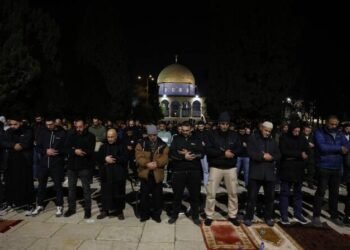
 United Arab Emirates Dirham Exchange Rate
United Arab Emirates Dirham Exchange Rate

